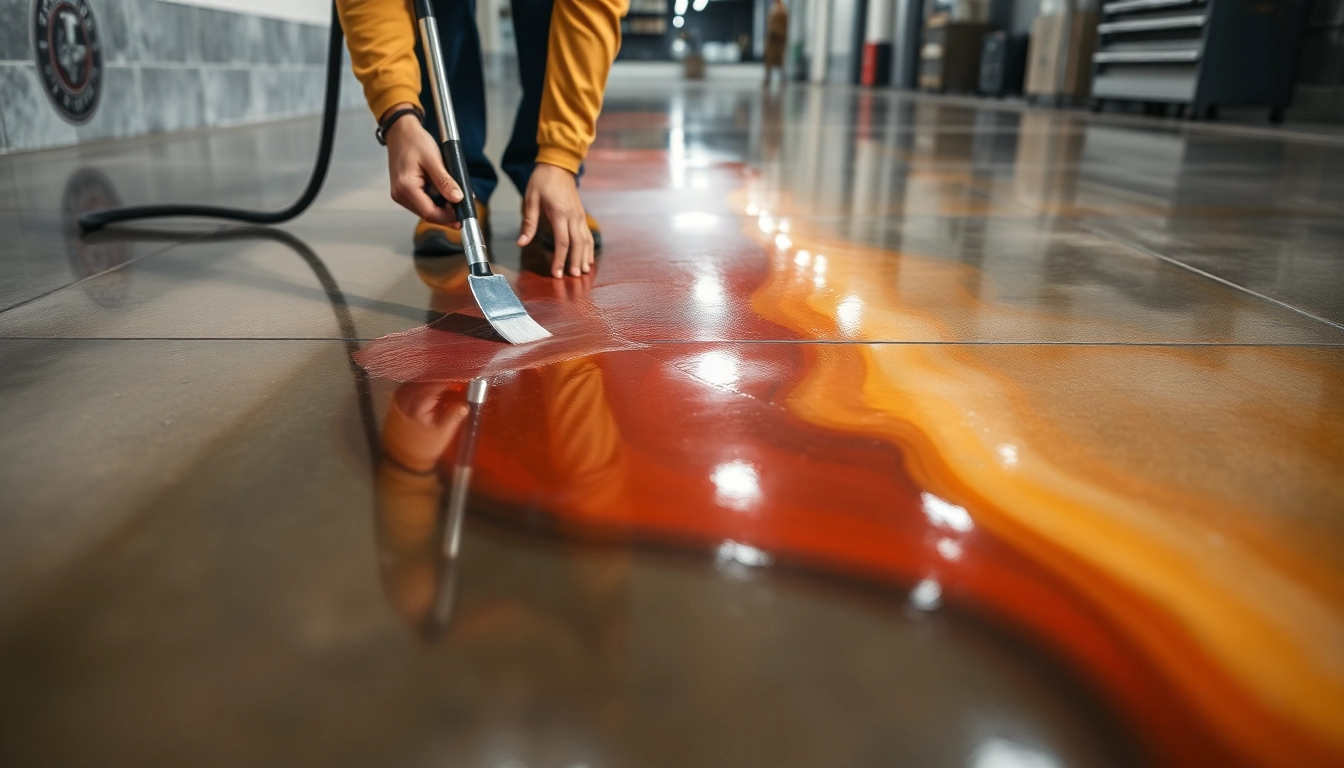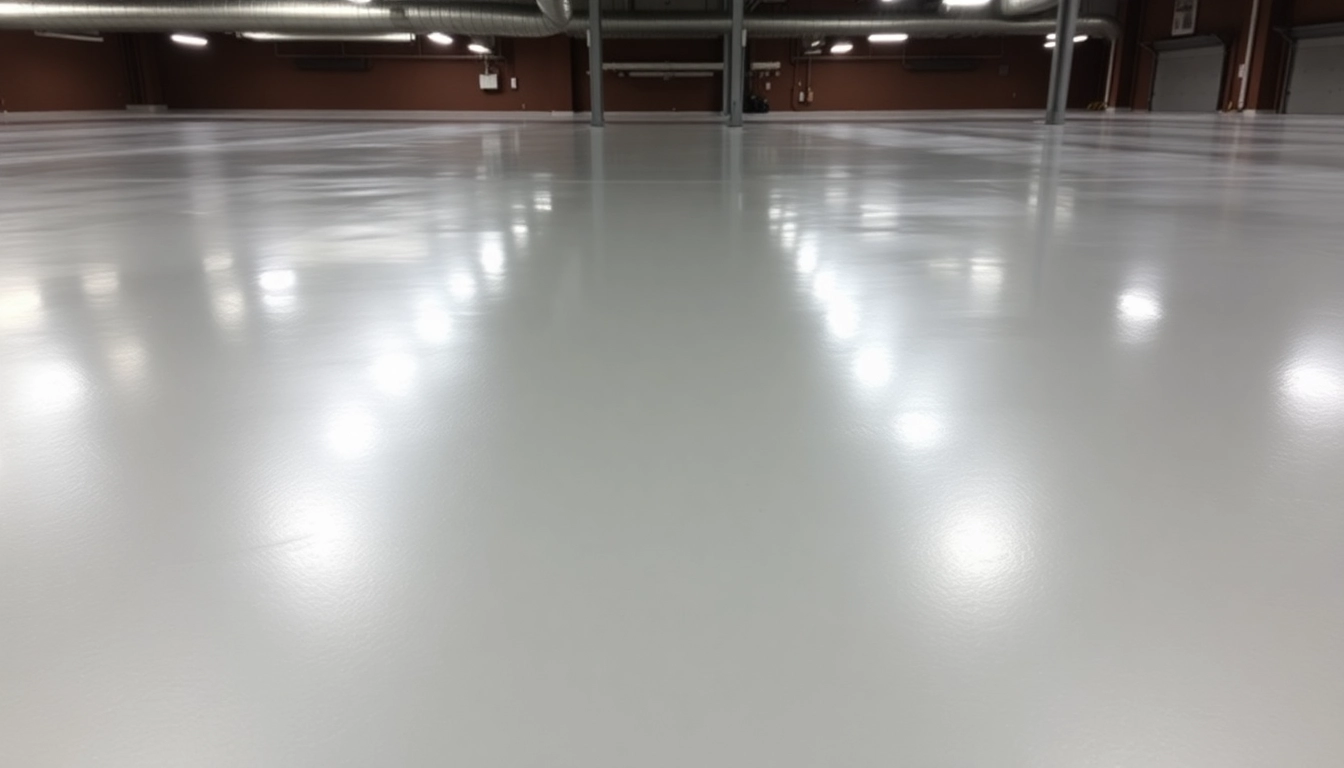Understanding Epoxy Resigning in Birmingham
Epoxy resinnig has become an integral part of modern flooring solutions in Birmingham, a city renowned for its vibrant industrial heritage and contemporary commercial developments. This innovative flooring technology offers durability, aesthetic versatility, and chemical resistance, making it an ideal choice for a wide range of applications. Whether transforming a residential basement, refurbishing an industrial workspace, or creating eye-catching commercial interiors, epoxy resinnig provides a resilient and professional finish. As the demand for high-quality epoxy floors continues to rise in Birmingham, understanding the nuances of the application process, types of epoxy, and local service providers becomes essential for homeowners and business owners alike.
For those considering epoxy resinnig, exploring options through trusted local experts, such as Epoxy resinng Birmingham, can significantly improve project outcomes. This article aims to delve into the essentials of epoxy resinnig, its applications, costs, maintenance, and future trends specific to Birmingham’s dynamic market.
What is Epoxy Resigning and Its Benefits
Epoxy resigning involves the application of a resin-based coating that chemically bonds to a substrate, creating a seamless, durable surface. Typically composed of epoxy resin and a hardener, the resulting layer boasts high strength, chemical and moisture resistance, and an attractive gloss finish. The process transforms ordinary concrete or other substrates into robust, long-lasting surfaces suitable for both functional and decorative purposes.
The benefits of epoxy resigning extend beyond durability. It offers a customizable appearance with vast color options, decorative flakes, metallic finishes, and logos, allowing businesses and homeowners to tailor their floors to specific aesthetics. Its antimicrobial properties can also contribute to a hygienic environment, especially vital in healthcare, food production, and hospitality sectors. Furthermore, epoxy flooring is resistant to impact, stains, and abrasion, significantly reducing maintenance costs and downtime.
Common Applications in Birmingham Homes and Businesses
In Birmingham, epoxy resinnig finds its place in diverse settings:
- Residential Spaces: Garages, basements, laundry rooms, and home gyms benefit from epoxy’s resistance to stains, moisture, and wear, providing a professional finish that enhances property value.
- Commercial Properties: Retail outlets, showrooms, and office spaces in Birmingham leverage epoxy floors for aesthetic appeal and durability, creating an inviting environment for clients and employees.
- Industrial Facilities: Manufacturing plants, warehouses, and factories require tough flooring solutions to withstand heavy machinery, chemical spills, and continuous foot traffic, making epoxy resinnig an ideal choice.
- Public Infrastructure: Schools, airports, and public transportation hubs utilize epoxy coatings to meet rigorous safety and maintenance standards efficiently.
As Birmingham continues to grow as a commercial hub, the versatility of epoxy resinnig caters to various sectors, supporting both functionality and branding efforts.
Choosing the Right Epoxy Type for Your Project
Selecting an appropriate epoxy resin depends on specific project requirements. There are primarily three types of epoxy used in flooring:
- Solid Epoxy: Comprising 100% resin, offering exceptional thickness and durability. Ideal for industrial purposes and heavy-traffic commercial spaces.
- Partially Filled Epoxy: A blend of epoxy with fillers or aggregate, suitable for decorative floors and light to moderate industrial applications.
- Self-Leveling Epoxy: Designed for smooth, even surfaces, perfect for high-gloss, seamless residential or commercial floors.
In Birmingham, consulting with local specialists ensures selection aligns with environmental conditions (e.g., humidity, temperature fluctuations), load requirements, and desired aesthetics. Polyaspartic coatings, a newer generation of resin, are also gaining popularity for their quick curing and superior UV resistance, especially in outdoor or sunlit areas.
Step-by-Step Guide to Professional Epoxy Floor Installation
Preparing Your Birmingham Floor for Epoxy Resigning
Proper surface preparation is critical to ensure adhesion and longevity. The process includes cleaning, grinding, and repairing any existing damage:
- Cleaning: Remove dirt, grease, oil, and contaminants using degreasers and pressure washing.
- Mechanical Preparation: Sanding or shot blasting roughens the surface, removing laitance and ensuring a key profile for epoxy bonding.
- Repairs: Fill cracks, holes, and imperfections with patching compounds compatible with epoxy substrates.
- Moisture Testing: Conduct tests to prevent delamination caused by excessive moisture underneath the slab.
Local Birmingham contractors are well-versed in these preparatory steps, ensuring a solid foundation for coating application.
Application Techniques for a Flawless Finish
Achieving a smooth, professional epoxy floor involves meticulous application methods:
- Priming: Applying a primer enhances adhesion and seals the substrate.
- Mixing: Precisely combine resin and hardener, following manufacturer guidelines to ensure proper curing.
- Application: Use rollers, squeegees, or sprayers depending on the epoxy type and project size. For large commercial floors, professional equipment ensures even distribution.
- Adding Decorative Elements: Incorporate flakes, pigments, or metallic additives during or after applying base coats for customized aesthetics.
- Layering: Multiple coats may be necessary, particularly for industrial or high-traffic installations.
Drying and Curing Process Explained
The curing time varies based on epoxy type, thickness, and ambient conditions. Typically, the initial cure occurs within 24-72 hours, but full strength is achieved after 5-7 days. In Birmingham’s climate, maintaining controlled temperature and humidity levels during curing—often around 20-25°C and low humidity—is essential for optimal results. Many local providers offer accelerated curing options with polyaspartic technology, reducing downtime.
Cost, Durability, and Maintenance of Epoxy Floors in Birmingham
Factors Affecting Epoxy Resigning Costs
Pricing depends on several factors:
- Floor Size: Larger areas require more materials and labor, impacting total costs.
- Epoxy Type: Specialty epoxies like UV-stable or high-solid variants command higher prices.
- Surface Condition: Prepping damaged or uneven surfaces increases labor and material expenses.
- Design Complexity: Decorative finishes, logos, and patterns add to the project cost.
In Birmingham, typical residential epoxy flooring projects can range from £50 to £100 per square meter, while industrial applications may vary based on specifications.
Ensuring Longevity and Resistance
Proper surface preparation, high-quality materials, and professional application are vital for durability. Regular inspections for cracks, chips, or wear allow timely repairs. Additionally, choosing chemical-resistant epoxy formulations enhances longevity, especially in commercial or industrial settings.
Maintenance Tips for Long-Lasting Results
Maintaining epoxy floors involves simple routines:
- Regular sweeping and damp mopping prevent dirt accumulation.
- Avoid abrasive cleaning agents that can scratch the surface.
- Address spills promptly to prevent stains or chemical damage.
- Reapply topcoats or sealers as recommended by professionals to renew shine and resistance.
Engaging Birmingham-based specialists for periodic maintenance can extend the lifespan of your epoxy flooring significantly.
Why Choose Local Birmingham Epoxy Experts
Finding Trusted Epoxy Resigning Contractors in Birmingham
Local expertise ensures familiarity with Birmingham’s specific building codes, climate challenges, and substrate conditions. Reputable contractors typically showcase portfolios, customer reviews, and certifications. Websites like Angi can help identify top-rated providers, but direct referrals or local business directories remain invaluable for trustworthiness.
Questions to Ask Before Hiring a Service
- What experience do you have with epoxy flooring in Birmingham?
- Can you provide references from previous clients?
- What epoxy products do you recommend for my specific needs?
- What is your estimated timeline and warranty coverage?
- How do you ensure safety and environmental compliance?
>
Customer Success Stories and Testimonials
Leading Birmingham contractors often share case studies highlighting successful transformations, such as converting a cramped garage into a stylish, durable workspace or restoring an industrial plant’s flooring to meet strict safety standards. These stories underscore the benefits of choosing experienced local specialists.
Future Trends in Epoxy Resigning and Floor Coatings in Birmingham
Innovative Resin Technologies on the Horizon
The industry continually introduces advanced resins offering enhanced UV stability, color retention, and application ease. For Birmingham, where outdoor and sunlit areas are prevalent, UV-resistant epoxy solutions are becoming standard to combat yellowing and degradation.
Sustainable and Eco-Friendly Flooring Options
Environmentally conscious consumers and regulations drive demand for low-VOC and solvent-free epoxies. Bio-based resins and recycling initiatives are also emerging, aligning with Birmingham’s growing emphasis on sustainable urban development.
How to Stay Updated with Birmingham Flooring Innovations
Regularly consulting industry publications, attending local trade shows, and engaging with Birmingham’s network of flooring professionals ensures you remain informed about the latest technologies and best practices.


